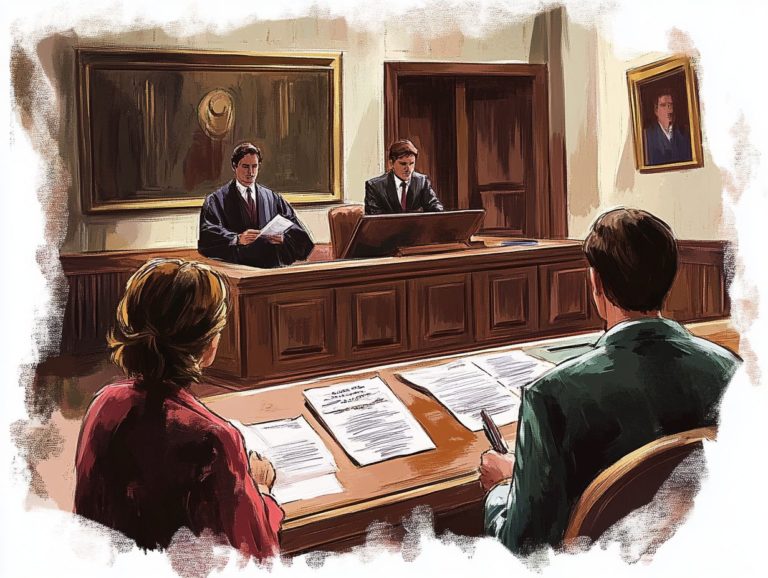The Art of Negotiation in Defense Strategy
Negotiation stands at the heart of defense strategy. It impacts everything from diplomatic relations to conflict resolution.
This exploration delves into negotiation s various dimensions. It highlights its critical role in crafting effective defense strategies.
You will uncover essential elements that drive successful negotiations. These include communication, relationship building, and strategic flexibility.
We will address real-world examples and challenges. Expect practical strategies and modern tools to enhance your negotiation outcomes.
Join us as we unravel the intricate art of negotiation in the defense sector.
Contents
- Key Takeaways:
- Understanding Negotiation in Defense Strategy
- Key Elements of Successful Negotiation
- Applying Negotiation in Defense Strategy
- Challenges and Pitfalls in Negotiation for Defense
- Strategies for Effective Negotiation in Defense
- Tips for Negotiating with Different Parties
- Utilizing Technology and Data in Negotiations
- Frequently Asked Questions
- What is the art of negotiation in defense strategy?
- Why is the art of negotiation important in defense strategy?
- What are some key elements of successful negotiation in defense strategy?
- How can one improve their negotiation skills in defense strategy?
- What are some common challenges in negotiating defense strategy?
- Can the art of negotiation be applied in other areas of defense besides international relations?
Key Takeaways:
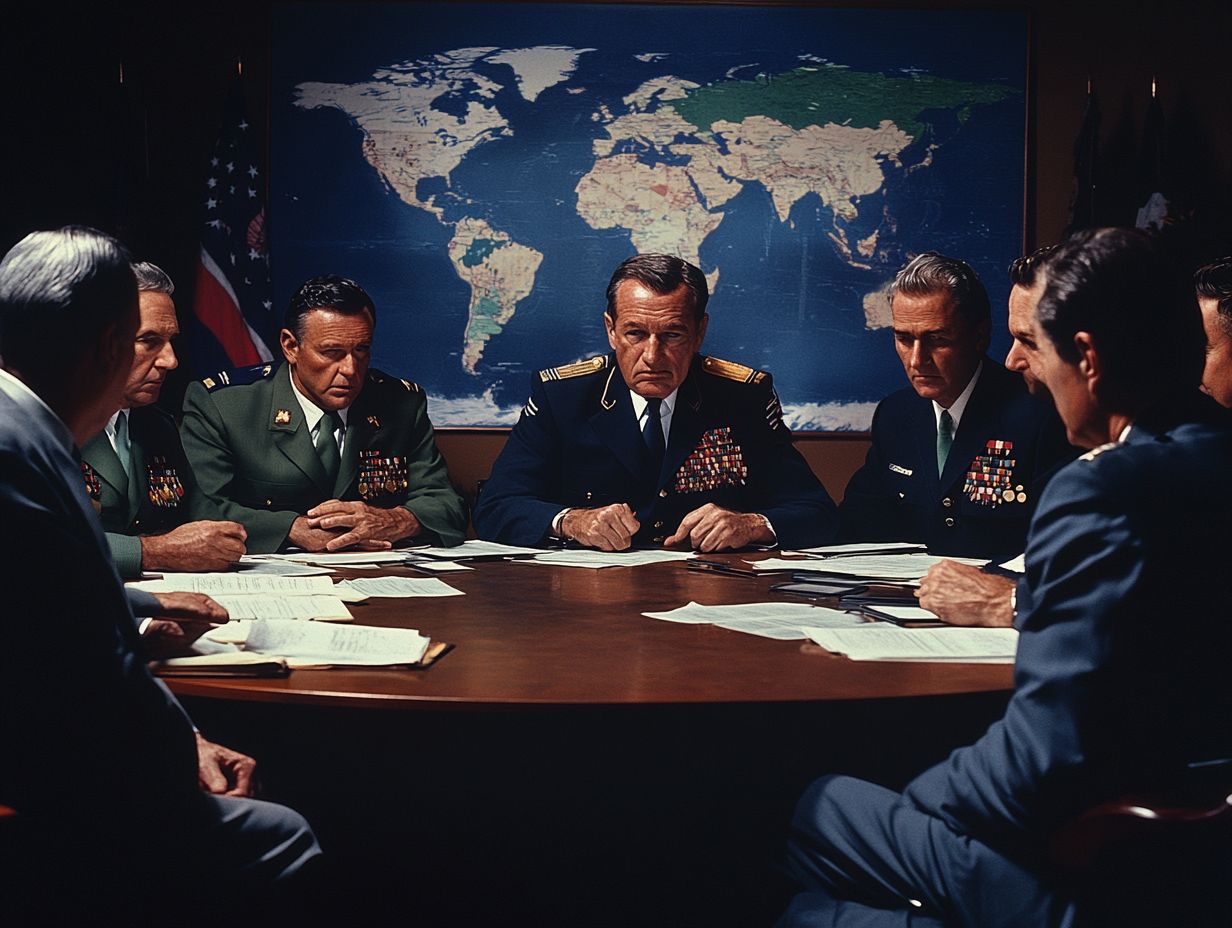
Effective negotiation is crucial in defense strategy. It involves understanding the other party’s needs, building relationships, and strategic planning.
Successful negotiation requires communication, flexibility, and the ability to adapt to changing circumstances. Utilizing case studies and diverse strategies can lead to effective outcomes.
Understanding Negotiation in Defense Strategy
Understanding negotiation in defense is essential for effective conflict management and deal-making, especially in uncertain situations.
Professionals often find negotiation strategies grounded in the art of negotiation. These strategies are often honed through studies at respected institutions like Harvard Business School.
To handle complicated diplomatic situations, you need to refine negotiation techniques. This includes blending adaptability with emotional intelligence to build trust.
Defining Negotiation and Its Role in Defense
Negotiation is a fundamental tool in defense strategy. It allows you to forge mutually beneficial agreements and resolve conflicts effectively.
Your ability to communicate clearly and assess situations strategically is essential. Michael Wheeler points out that negotiation goes beyond simple haggling; it involves techniques that foster understanding among conflicting parties.
The principles from Harvard Law School highlight preparation, active listening, and adaptability. These can lead to solutions that meet everyone s underlying needs.
In defense, these skills are crucial for navigating diplomatic engagements. They also help in managing crises and advancing peacekeeping efforts, playing a vital role in fostering global stability.
Key Elements of Successful Negotiation
Successful negotiation hinges on several essential elements. These include your negotiation skills, effective communication, and the ability to build trust and rapport.
Communication and Relationship Building
Effective communication and relationship building are key in negotiation. They serve as the foundation for trust and rapport essential for achieving successful outcomes.
As you navigate negotiation complexities, prioritize active listening. This helps you understand the perspectives and needs of the other party.
Using techniques like open-ended questions can spark deeper discussions. Maintaining a calm and respectful demeanor enhances the negotiation atmosphere, making it easier to find common ground.
These strategies improve immediate negotiations and pave the way for lasting partnerships based on mutual respect.
Strategic Planning and Flexibility
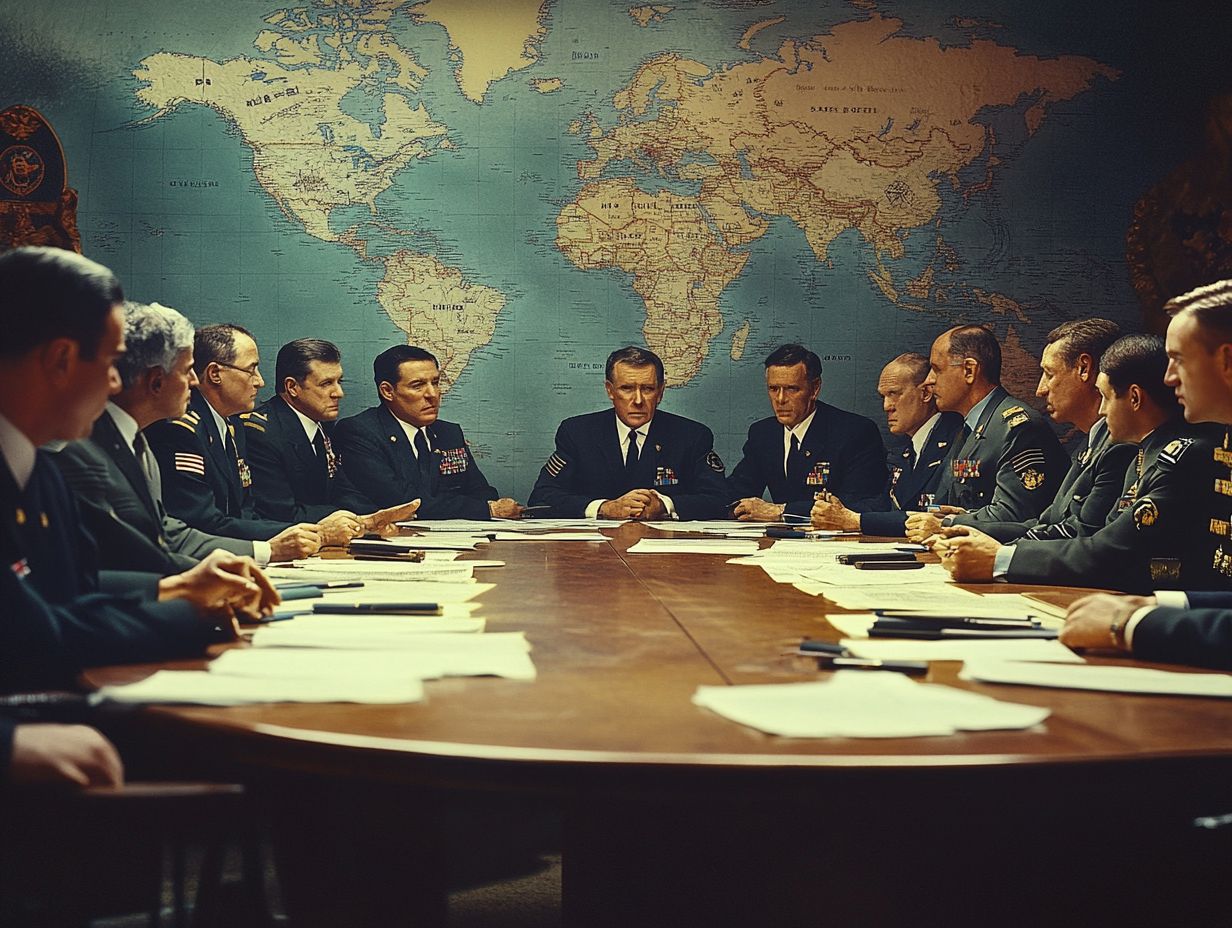
Strategic planning and flexibility are very important in your negotiations, empowering you to adapt your approach as circumstances and objectives evolve.
Incorporating a well-conceived strategy is not just important; it’s fundamental. It lays the groundwork for successful negotiations! This strategy allows you to clarify your goals and comprehend the dynamics at play.
Consider military doctrines like Sun Tzu s teachings understanding when to engage or retreat can serve as a valuable guide in your negotiations. This insight highlights the importance of remaining adaptable.
Adjusting your tactics as situations unfold or as new information surfaces is crucial. Your ability to pivot in response to the other party s actions often spells the difference between success and failure, whether in a business negotiation or a diplomatic dialogue.
Applying Negotiation in Defense Strategy
Applying negotiation within your defense strategy requires a deep understanding of various business tactics that seamlessly translate into military and diplomatic contexts.
By drawing on real-world case studies, you can enhance your approach and ensure more effective outcomes.
Examples and Case Studies
Real-world examples and case studies vividly illustrate how negotiation tactics can be practically applied in defense strategy and conflict management. These instances highlight the significance of strategic communication and relationship-building.
They also demonstrate how well-executed negotiation techniques can lead to meaningful breakthroughs. For instance, consider a prominent case involving a high-stakes international dispute: the parties embraced a negotiation style that focuses on what both sides want to pinpoint shared goals, ultimately fostering a peaceful resolution.
In another compelling example, working together to find solutions brought all stakeholders into an authentic dialogue, creating a mutual understanding that laid the groundwork for compromise.
Analyzing these examples reveals specific tactics such as active listening, problem-solving, and trust-building essential elements in the defense sector that help ensure lasting agreements.
Challenges and Pitfalls in Negotiation for Defense
Negotiation in defense frequently presents a landscape filled with challenges. You may find yourself navigating gaps in understanding people’s feelings and grappling with obstacles stemming from the complexities of uncertainty management.
Common Obstacles and How to Overcome Them
Common obstacles in negotiation, such as miscommunication and entrenched positions, can impede your progress. However, you can effectively manage these challenges with adaptability and a problem-solving mindset.
Navigating these hurdles requires a deep understanding of the underlying interests of all parties involved. When you encounter a stalemate due to rigid stances, employing active listening can uncover areas ripe for compromise.
A willingness to reframe issues can shift your focus from positions to shared goals, fostering a more collaborative environment. Effective negotiators like you recognize the importance of flexibility in your strategies, allowing for real-time adjustments as the conversation unfolds.
By prioritizing relationship-building and open communication, you can create pathways to resolution, ultimately transforming obstacles into opportunities for mutual gain.
Strategies for Effective Negotiation in Defense
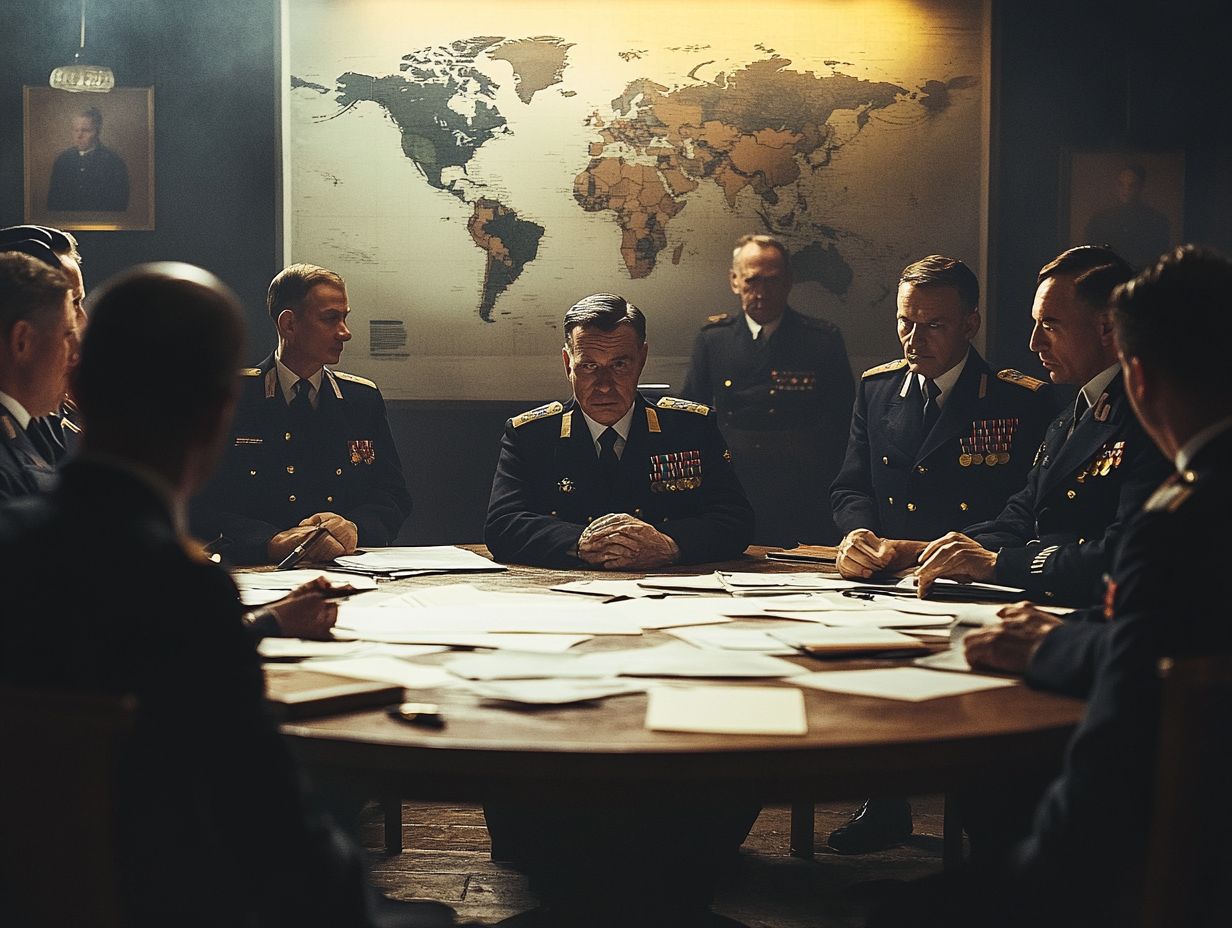
To achieve effective negotiation outcomes in defense, employing targeted strategies and insightful tips can greatly enhance your negotiation skills and elevate your communication effectiveness. Don’t miss out on opportunities to negotiate effectively!
Tips for Negotiating with Different Parties
Negotiating with various parties demands a set of tailored strategies that highlight the importance of adaptability and emotional intelligence to effectively navigate diverse viewpoints.
Grasping cultural nuances can greatly elevate your negotiation experience. Different parties may exhibit unique communication styles, values, and priorities. For example, when interacting with cultures that prioritize group harmony, you ll find that harmony and group consensus often take center stage. In contrast, cultures that value personal achievement may lean towards straightforward communication.
To refine your approach, focus on active listening and empathy while also recognizing when it s time to assert your own position. Keep in mind that contextual factors, such as economic conditions and industry standards, can shape the negotiation landscape. This underscores the necessity of maintaining a flexible mindset that encourages adjustments and fosters creative problem-solving.
Utilizing Technology and Data in Negotiations
Utilizing technology and data can dramatically elevate your negotiation techniques. These tools offer valuable insights that help manage uncertainty and enhance decision-making.
By employing advanced tools like predictive analytics, which help forecast future trends based on data, you can uncover patterns and trends that shape your strategies, ensuring you’re well-prepared for various scenarios.
Collaborative platforms facilitate real-time communication and data sharing among stakeholders, fostering an atmosphere of transparency and trust.
Incorporating techniques such as scenario planning allows you to anticipate potential outcomes through thorough data analysis.
Essentially, leveraging technology not only streamlines the negotiation process but also gives you the power to navigate complexities with enhanced confidence and precision.
Frequently Asked Questions
What is the art of negotiation in defense strategy?
The art of negotiation in defense strategy refers to the skills and techniques used to reach a favorable outcome in a defense-related negotiation. It involves effective communication, understanding the opponent’s perspective, and the ability to find mutually beneficial solutions.
Why is the art of negotiation important in defense strategy?
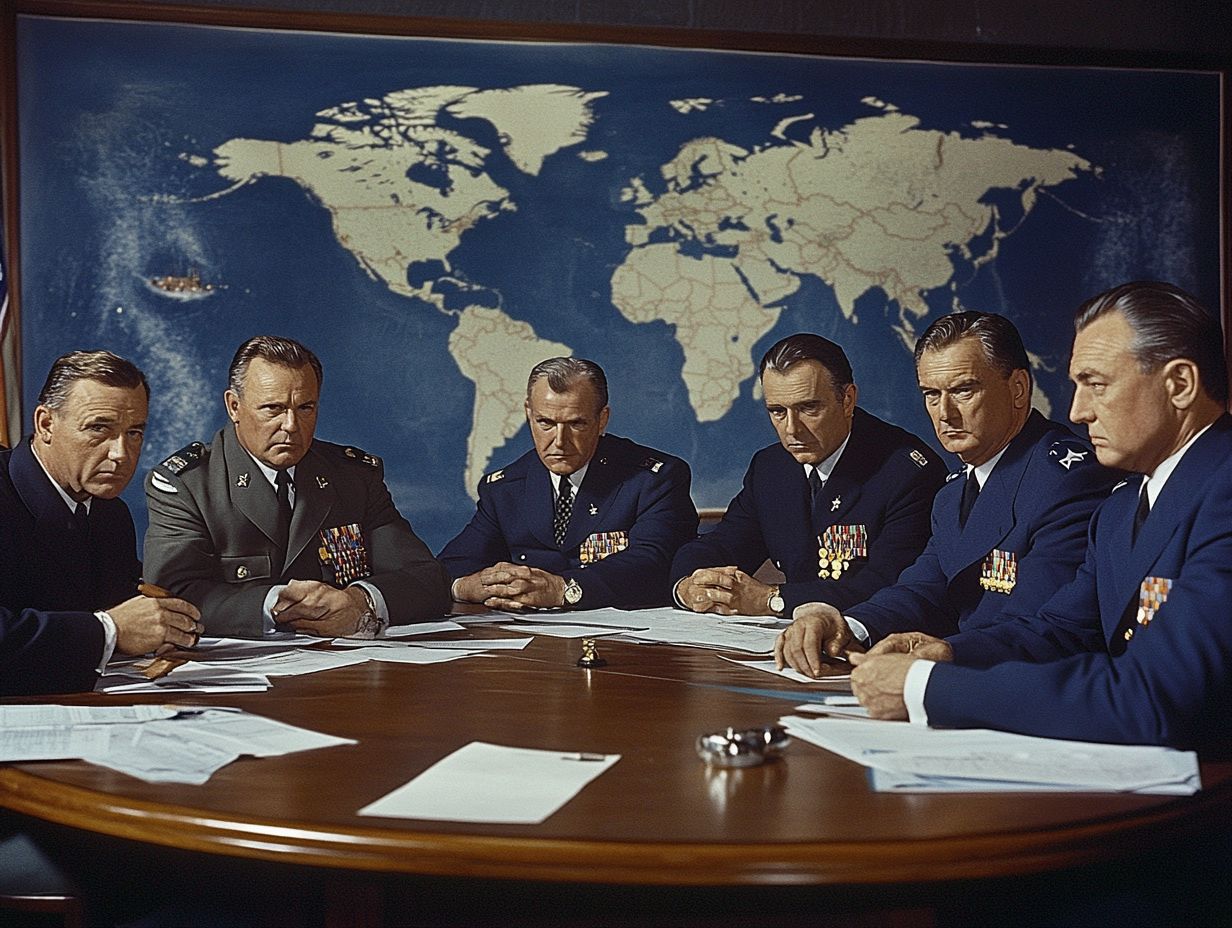
Mastering negotiation is essential for achieving success in defense strategy, as it allows for peaceful resolution of conflicts and helps avoid costly and destructive military actions. It also aids in building and maintaining diplomatic relations with other countries.
What are some key elements of successful negotiation in defense strategy?
Key elements include preparation, active listening, assertiveness, flexibility, and creative problem-solving. Maintaining a professional and respectful attitude throughout the negotiation process is also crucial.
How can one improve their negotiation skills in defense strategy?
Improving negotiation skills can be achieved by practicing active listening, understanding the opponent’s perspective, and developing a strong understanding of the subject matter. Attending negotiation workshops can also help enhance your skills.
What are some common challenges in negotiating defense strategy?
Common challenges include language barriers, cultural differences, power imbalances, and conflicting interests. Awareness of these challenges and addressing them effectively is important for reaching a successful negotiation outcome.
Can the art of negotiation be applied in other areas of defense besides international relations?
Yes, the art of negotiation can be applied in other areas such as contract negotiations, budget negotiations, and negotiations between different branches of the military. While the principles and techniques remain the same, the specific strategies may vary based on context.
Ready to enhance your negotiation skills? Start today!



